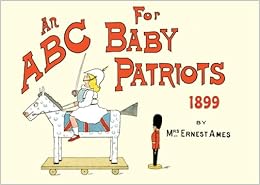British thought towards Indians has often times been negative. This was especially true during the time period that India was a colony of the British Empire. As a British colony, India was subjected to many years of discrimination. The British felt that they were the superior race and forced their cultures and beliefs onto the Indians. The British set up schools in English and began to westernize India. These beliefs could be found in prominent British literature at the time such as Macaulay’s Minute on Indian Education and An ABC, for Baby Patriots.
Macaulay’s Minute on Indian Education
Thomas Babington Macaulay wrote this piece in 1835, a time in which India had been under British influence for many years. Macaulay was a member of the Council of India and a firm believer in European dominance. Macaulay particularly believed in the dominance of the English language in comparison to Sanskrit and Arabic. He believes in this dominance because of the superiority that European nations have over India in regards to science and technology. Macaulay does recognize that poetry may be a reason to learn Sanskrit or Arabic but, dismisses the fact by saying that European poetry is better. Macaulay believes that the continuation of schooling in Arabic and Sanskrit is a waste of time for the Indian populace and should be discontinued immediately. Instead, India as a nation should start educating people in English. Macaulay sees South Africa and Australia as great colonial successes and wishes that India can become just as successful. Macaulay believes that English is going to be the trade language of the Eastern hemisphere. Many Indians argued against Macaulay’s beliefs, saying that they need Sanskrit and Arabic in order to study their holy texts but, Macaulay dismisses them. He believes that Hinduism is a false religion and therefore, there is no point in studying texts that do not mean anything. Macaulay truly believes that the Indians are wasting their time. Macaulay even says that he will resign from his office if he is not allowed to change the current education system because of how strongly he feels about the strength of the English language.
An ABC, For Baby Patriots
Written by Ernest Ames in 1899, the children’s book An ABC, For Baby Patriots is as nationalistic as Macaulay’s works. Like Macaulay’s Minute on Indian Education, Ames wrote a story promoting the British Empire. In the book there are many different things that Ames capitalizes on. Ames talks a lot about the power of the British military and their many colonies around the world. In regards to India, British nationalist just believed it to be just another colonial holding in the Eastern hemisphere. Even in the book, the British saw India as a vacation spot within the Eastern hemisphere. The British superiority began to seep into the minds of the Indian people and they were beginning to truly believe what the British were saying.
The partition of India went poorly for the Indian government because of these strong nationalistic ideals. As Indian independence neared, the British were unsympathetic towards the Indian people and felt as if independence and partition was not their problem. In a way, this is why partition happened so quickly despite the fact that many Indians felt it should have been more drawn out. For a long time British superiority was ingrained into the Indian mind. Many Indians believed in their British rulers and thought that the British could do no wrong. Indians began to incorporate British cultures and beliefs, while forsaking their own traditions despite the strong opposition from leaders like Mahatma Gandhi.
For further reading:
Macaulay’s Minute on Indian Education

